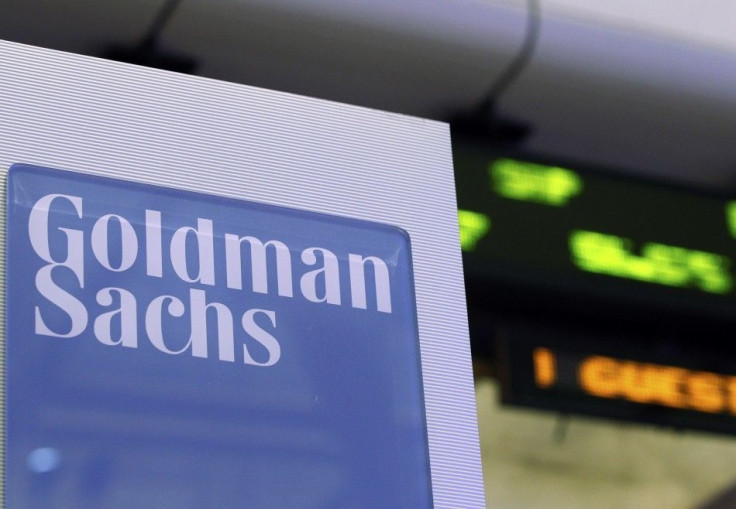Critic Claims Goldman Stands To Make $26 Billion In Next Decade By Shuffling Aluminum Between Warehouses

Tim Weiner, global risk manager at Molson Coors Brewing Company (NYSE:TAP), known as MillerCoors, told a Senate panel on Tuesday that Goldman Sachs' control of aluminum inventory storage and transportation could earn the Wall Street investment behemoth up to $26 billion over the next decade and raise consumer prices across the broader economy.
Testifying before the Senate's Banking, Housing and Urban Affairs Committee, his comments were part of a legislative examination about whether banks should control power plants, warehouses and oil refineries.
His testimony comes just a day after the New York Times Company (NYSE:NYT) ran an investigation that claimed that Goldman Sachs Group Inc. (NYSE:GS) was using its ownership of 27 aluminum warehouses in Detroit to make money from commercial customers by delaying their orders and charging a daily rent to hold the aluminum while it waits to be shipped.
According to Weiner’s testimony, these delays could make Goldman $26 billion over 10 years in rental charges and mean that companies would have to pass on costs to consumers.
Goldman Sachs owns the warehouses that it bought from Metro International in 2010. In that time, the amount of aluminum stored has gone from 50,000 tons to 1.5 million tons, and normal time for shipment has increased from 6 weeks to around 16 months.
In context, the U.S. consumed 413,000 tons of aluminum in June.
The London Metals Exchange, or LME, which globally dictates the rules on metal storage and sales, take 1 percent per year from operations. The LME was originally established as a last resort market where industry can use LME to sell excess stock in times of oversupply and as a source of material in times of extreme shortage.
Weiner claims that Goldman has bought 70 percent of the U.S. aluminum supply, which has artificially created a shortage in the market that is using aluminum in record amounts. Normally, companies would turn to the warehouses to remedy that shortage, but instead they are finding huge delays and increased costs.
“Instead, what’s happening is that the aluminum we are purchasing is being held up in warehouses controlled and owned by U.S. bank holding companies, who are members of the LME, and set the rules for their own warehouses," he said.
“These bank holding companies are slowing the load-out of physical aluminum from these warehouses to ensure that they receive increased rent for an extended period time. Aluminum users like MillerCoors are being forced to wait in some cases more than 18 months to take physical delivery due to the LME warehouse practices or pay the high physical premium to get aluminum today. This does not happen with any of the other commodities we purchase," Weiner said.
Randall Guynn, one of the country’s leading bank regulatory lawyers at Davis Polk, however, said that the warehouses only hold 5 percent of global aluminum and that allowing financial holding companies to control commodities, such as aluminum, oil and electricity, is in fact better for the consumer, because they “increase customer choice, increase competition, act as more effective intermediaries between producers and end-users, provide increased liquidity to the markets and lower prices to consumers.” But crucially, he says, repealing the power banks have over commodities would “create substantial risk to the safety and soundness of depository institutions and the financial system generally.”
LME rules say that metals cannot be stored in warehouses as owners of the aluminum wait for prices to go up, a practice that is used in the oil industry in which tankers anchor offshore waiting for price per barrel to rise. The rules say 3,000 tons must be moved from warehouses each day. Goldman gets around these rules, Weiner said, by moving the aluminum to different locations, therefore satisfying the rules, but ensuring that they maximize profits on rent.
The LME was bought by Hong Kong Exchanges and Clearing only 8 months ago from a group of investors and bankers but says they have no jurisdiction over what’s happening in Detroit. U.S. and UK regulators have said they are uncertain who is responsible for oversight.
This “grand experiment has gone far better for the banks than it has for the consumers,” Joshua Rosner, managing director of Graham Fisher and Co., said. “Electricity users appear to pay more because of Wall Street involvement, aluminum for airplanes and soda cans costs more, and some say gasoline at the pump costs more -- without any measurable benefit to anyone but the banks.”
Current month-on-month global aluminum inventories have remained fairly constant since the late 1980s, fluctuating between 2 million tons and 3.4 million tons at their peak in the last year. However, U.S. inventories are now just a third of what they used to be, down from 1.8 million tons in the 80s to 633,000 tons in May 2013. This scale back in production mirrors China’s rise as an aluminum producer but also comes at a time when aluminum is at peak production in the U.S.
Goldman Sachs said in a press release that their warehouse facility in Detroit was operating within the rules that the LME set.
“During the financial crisis, warehouse companies played the important role of allowing metal producers, who are often unable to adjust immediately to changes in demand, to store excess metal in the face of weak consumer demand. In fact, LME aluminum inventories more than tripled from 1.2 million tonnes pre-crisis to more than 4.5 million tonnes by the middle of 2009. As a result, large amounts of metal accumulated at some locations,” a Goldman Sachs press release states.
© Copyright IBTimes 2024. All rights reserved.












